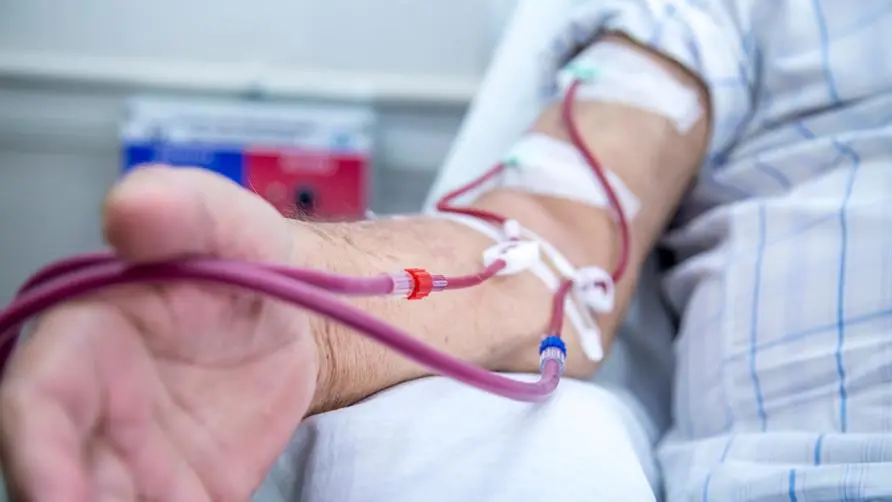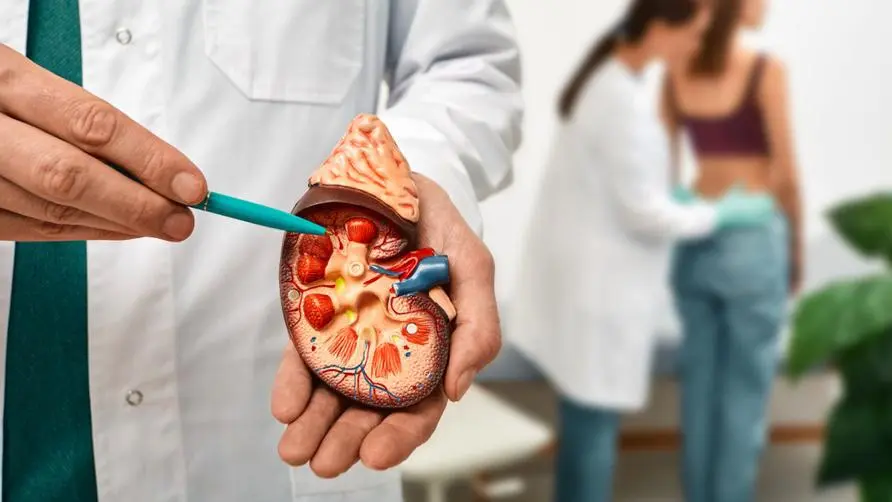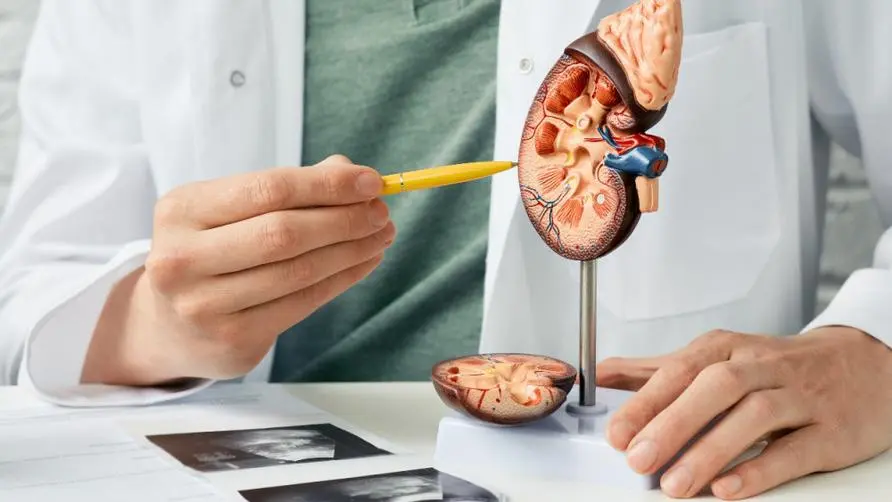Do you need kidney dialysis in your early 30s? Polycystic kidney disease not only damages the kidneys but also causes "systemic comorbidities"! Medical advice: If you have a family history, you must be screened

Can’t you feel the blisters on your kidneys? Is severe abdominal bloating like pregnancy due to polycystic kidney disease?
Kidney “blisters” are asymptomatic, but may young people need early dialysis? Dr. Wang Jialiang, director of the Department of Nephrology at Guangtian General Hospital Shalu General Hospital, said in an interview that “polycystic kidney disease” is one of the most important diseases causing kidney dialysis among all hereditary kidney diseases. If parents suffer from polycystic kidney disease, there is a 50% chance that their children will develop it, which will affect their kidney function in adulthood and eventually lead to dialysis.
“There are no obvious symptoms in the early stages of polycystic kidney disease, but the blisters may grow larger and larger, even 20 times the size of an ordinary kidney. Some patients have belly as big as pregnancy, which is very difficult!”
Dr. Wang Jialiang reminded that some people with a family history of polycystic kidney disease tend to ignore polycystic kidney disease screening and early treatment because they have no obvious symptoms or have normal kidney function. By the time obvious symptoms appear in your 50s or 60s, kidney function may have severely declined.
Poor control, early kidney dialysis and systemic comorbidities of polycystic kidney disease should not be ignored
Dr. Wang Jialiang pointed out that most patients with type 1 polycystic kidney disease are in their 50s and those with type 2 are in their 70s. Type 1 polycystic kidney disease is more serious. If polycystic kidney disease is ignored and not well controlled, kidney dialysis will be carried out early. People with a family history are encouraged to get screened early and receive early treatment before kidney function worsens.
In addition, polycystic kidney disease not only causes damage to kidney function, Dr. Wang Jialiang explained that polycystic kidney disease also has a higher incidence of kidney stones and urinary tract infections. The risk of brain hemangioma, aortic aneurysm, aortic dissection, heart valve disease, and large bowel diverticula is also increased. Cysts may also occur in the liver and spleen, facing the risk of systemic complications.
The golden treatment period for polycystic kidney disease? The sooner oral medication is taken, the better?
Dr. Wang Jialiang reminds that those with a family history of polycystic kidney disease should undergo ultrasound or blood and urine tests. Once polycystic kidney disease is confirmed, they should receive early treatment and pay attention to diet, exercise and drinking plenty of water. Hydration is not only good for kidney function, it can also prevent stones and suppress antidiuretic hormone to avoid stimulating the growth of blisters.
People with polycystic kidney disease are advised to adopt a low-sodium and low-protein diet to control high blood pressure. The intensity of exercise varies depending on the size of the blisters, and it is also necessary to avoid trauma and collision that may cause the kidney blisters to rupture.
“In the past, there were no drugs available for polycystic kidney disease, but now there are oral drugs for polycystic kidney disease, and they are paid through insurance. In addition to maintaining kidney function and reducing the chance of dialysis, the key point is that the drugs must be used early to be effective!”
Dr. Wang Jialiang said that chronic kidney disease is divided into five stages. End-stage kidney disease requires dialysis or kidney transplantation to maintain life. Patients with polycystic kidney disease usually need kidney dialysis after middle age, and young age is the prime time for treatment. National health insurance also stipulates that only polycystic kidney disease patients under the age of 50 and with stage 3 chronic kidney disease can receive benefits.
Polycystic kidney disease required him to undergo dialysis at the age of 30! Don’t give up when facing kidney disease
However, even if dialysis is needed due to polycystic kidney disease, treatment should not be abandoned. For example, Dr. Wang Jialiang treated a mother and her son with polycystic kidney disease in the past. The mother maintained normal kidney function 12 years after her kidney transplant. My son started dialysis treatment when he was in his 30s. He still maintains an optimistic attitude and actively faces the disease. Patients with polycystic kidney disease can choose hemodialysis or peritoneal dialysis according to their needs. Patients should discuss with their nephrologist which treatment options are appropriate for them.
Dr. Wang Jialiang reminded that in the past, there was no active treatment for patients with polycystic kidney disease. Nowadays, oral drugs are available that can significantly delay dialysis and maintain kidney function. People with a family history must go to the hospital for screening so that more patients can be screened. Proper and early treatment of cystic kidney disease can avoid deterioration of renal function and the dilemma of early dialysis.
Further reading:





